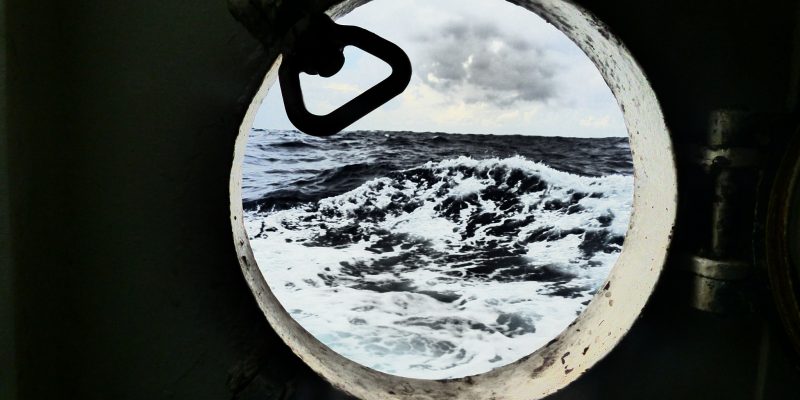1. Lessons from Libya / 1
The horrors of Libya – with its modern-day, open-air slave markets – are making the front pages of newspapers worldwide. The same horrors should lead us to reflect on the blatant inadequacy of EU policies in the African country. We need to abandon the emergency approach and start planning long-term action. Read the article by Simon McMahon in Conversation.
2. Lessons from Libya / 2
This op-ed by Nanjala Nyabola in Irin News is another reminder of the important lessons that Libya should teach us on the issues or racism and justice within the context of the international humanitarian system. A must read (while the situation in the country is getting worse).
3. Voices of smugglers
In her report for L’Espresso, Francesca Mannocchi gives us a new perspective on Libya, through the voices of smugglers, exposing the horrors and the complicity in the business of human trafficking.
Ibrahim, 32, smuggler in Garabulli "Nothing has changed here"he says.
And John, 24, who fled Ghana two years ago and now trapped in #Libya.
Our latest from #Libya for @espressonline pic.twitter.com/Dq3WQNQXXC— francesca mannocchi (@mannocchia) December 10, 2017
Also read this report by Giacomo Zandonini from Niger, about a former passeur who spend his life guiding migrants in the Sahara.
4. Lessons from Lesbos / 1
Europe’s plan to end its migrant crisis is failing. This indictment comes from the New Yorker‘s Jake Halpern, writing from the Greek island of Lesbos, an emblem of the limbo where our misguided policies are forcing thousands of people.
5. Lessons from Lesbos / 2
Also on Lesbos are Patrick Strickland for Al Jazeera and Nick Squires for the Telegraph, who are documenting in their reports how Greece – despite the international funding and energy expended – is once again unprepared for winter, and asylum seekers are left in the cold and rain (with 6,000 living in a camp designed to fit only 2,000).
Meanwhile, on the island of Chios, Buzzfeed reporters have discovered a mental health emergency, with patients treated with massive doses of drugs.
6. A six-year-old killed at the Croatian border
Madina was not yet six when she was hit by a train at the border between Serbia and Croatian. She had fled Afghanistan in early 2016 with her mother and six siblings, after their father, a police officer, had been repeatedly threatened by the Taliban. They had crossed the sea on a rubber dinghy and, after spending almost a year in Serbia, they had finally crossed the border into Croatian. They had nearly made it, but the border police ordered them back along the railway tracks. Madina’s tragic story was told by Emma Graham-Harrison in the Guardian (also read our own reports on border deaths).
7. Rome: with no official plan for migrants, volunteers step in, once again
Roma is still the only European capital with no official plan for migrants. As a result, the only options for refugees and asylum seekers are either the streets or the squats (where they live under the constant threat of eviction). Many volunteers, however, are offering to help, especially the ones from Baobab, which now has a mobile unit following the closing of the centre on via Cupa. The volunteers’ work is invaluable, since the number of migrants arriving in Italy is rising, as shown by this report from Rete legale per i Migranti in Transito and the data from Medici per i Diritti Umani. Read the article by Giacomo Zandonini in Repubblica.
8. A safe third country?
The new procedure regulation of the EU – currently being debated at the European Parliament – might include a proposal to make pushbacks of asylum seekers easier, by further expanding the notion of “safe third country”. This way, the definition might even include countries that did not ratify the 1951 Geneva Convention, and did not adopt asylum laws. This would mean that EU countries might not accept asylum applications from people who transited through these so-called “safe” countries, including Libya (see if this is a safe third country). Read the article by Annalisa Camilli in Internazionale.
9. How Germany is preparing to send refugees back to Syria
The war in Syria is far from over and the situation in the country is tragic to say the least, yet a growing number of German (nationalist) politicians wants to send refugees back, possibly starting from next summer, and even against their will (while the controversial deportation of Afghans is already underway). This is a sad example of the EU’s failure to learn from the past, and to respond to the humanitarian emergency. Read the article by Ben Traub in Foreign Policy.
Aside: last week the Independent broke the news that a group of German pilots stopped the deportation of 222 asylum seekers from Germany, by refusing to board the passengers against their will. This article in The Local takes a closer look to make some important clarifications (because, unfortunately, there is no protest movement).
10. The truth about refugees
There are so many stereotypes and falsehoods about refugees: they steal our jobs, they are radicalised, they drive crime rates up. These are only some of the myths on forcibly displaced people that are brilliantly debunked in this video made by a group of creative Americans (in reaction to Trump’s policies), as told in this article in Fast Company. Read, watch and share!
Translation by Francesco Graziosi.
Header photo: Brainbitch (CC BY-NC 2.0).









